As others have mentioned, a.update(b) for some dicts a and b will achieve the result you've asked for in your question. However, I want to point out that many times I have seen the extend method of mapping/set objects desire that in the syntax a.extend(b), a's values should NOT be overwritten by b's values. a.update(b) overwrites a's values, and so isn't a good choice for extend.
Note that some languages call this method defaults or inject, as it can be thought of as a way of injecting b's values (which might be a set of default values) in to a dictionary without overwriting values that might already exist.
Of course, you could simple note that a.extend(b) is nearly the same as b.update(a); a=b. To remove the assignment, you could do it thus:
def extend(a,b):
"""Create a new dictionary with a's properties extended by b,
without overwriting.
>>> extend({'a':1,'b':2},{'b':3,'c':4})
{'a': 1, 'c': 4, 'b': 2}
"""
return dict(b,**a)
Thanks to Tom Leys for that smart idea using a side-effect-less dict constructor for extend.
